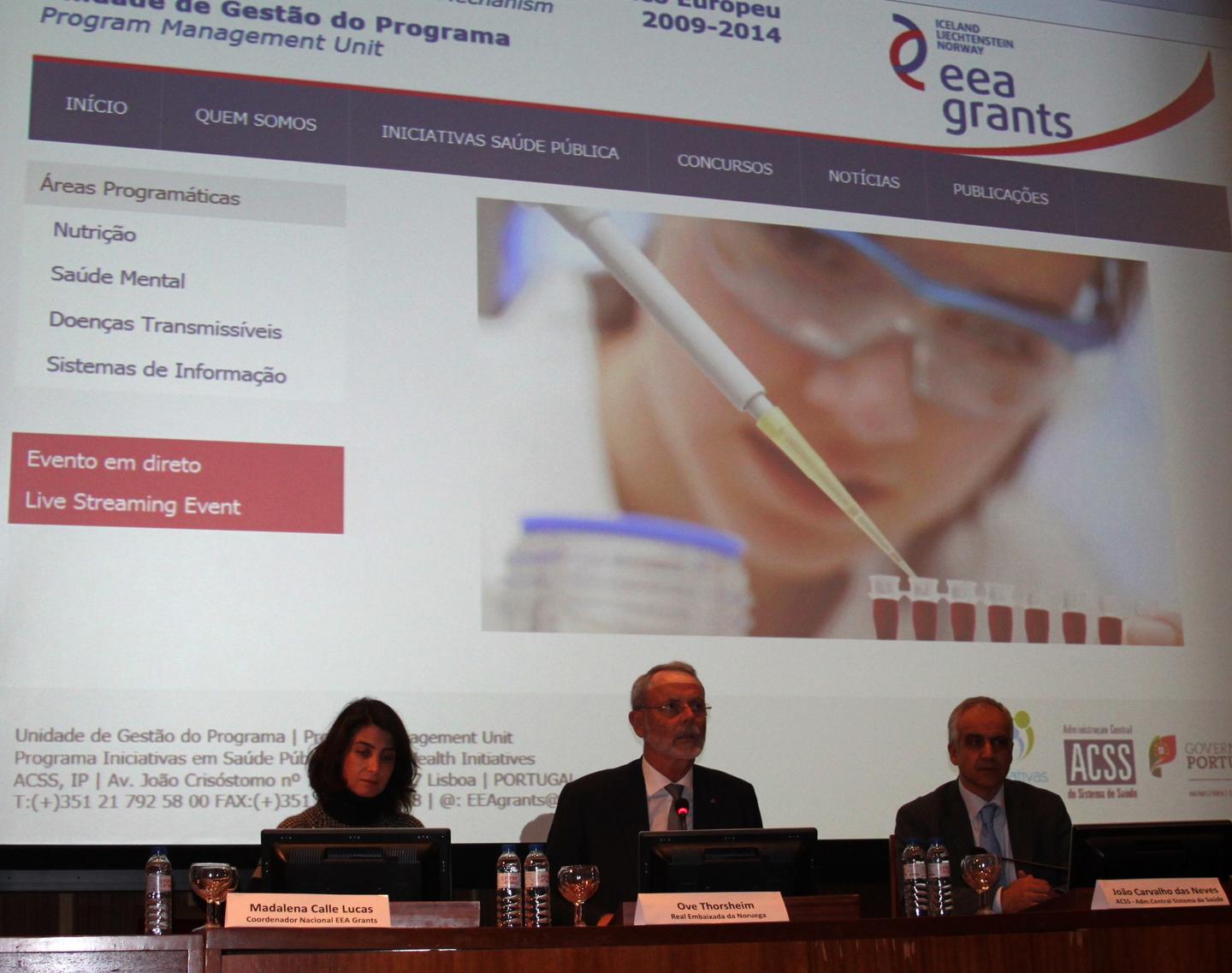In Portugal, as in other European countries, a high level of unequal income distribution is associated with high risk rates of income poverty. The negative effects of social disparities on people’s health and quality of life are addressed through the €10 million health programme in Portugal. Focus is on reducing inequalities between user groups, such as children and young people, the elderly, minority groups, people at risk of poverty, people with HIV/AIDS and people with addictions.
The programme was launched in Lisbon 16 January. A call for proposals will open shortly.
Follow our website for updates: www.eeagrants.org/opencalls/search
Healthy food important
A central part of the programme is improving information on nutrition. This is important as low income families more often eat affordable, but unhealthy high energy foods, resulting in high obesity rates which again may be followed by negative health effects.
Teaching low-income families, and training staff at schools and canteens for the elderly what is affordable and healthy meals, can be important ingredients in health information campaigns in times of severe economic crisis.
The programme will also address challenges in mental healthcare as well as prevent communicable diseases, including HIV/AIDS and tuberculosis. A pre-defined project focusing on improving national registries, information systems and data management within the health sector will also take place.
Learning from each other
A central aim of the programme is to contribute to the strengthening relations between Portugal and the donor states, Iceland, Liechtenstein and Norway. A bilateral partnership will be seen as an asset for the applicants. During the launch-ceremony on 16 January Andrei Grijbovski representing the Norwegian Institute of Public Health (FHI), which is the Norwegian donor programme partner in the health programme explained how the institute may assist Portuguese entities in finding a qualified Norwegian partner for their projects.
Portugal is a country that has come very far in many health related issues, and Grijbovski stressed that it is not only Portugal that will benefit from partnerships with Norway, but also Norwegian entities will have a lot to gain by collaboration with Portuguese project promoters. The health programme contains a special fund for promoting bilateral partnerships.
